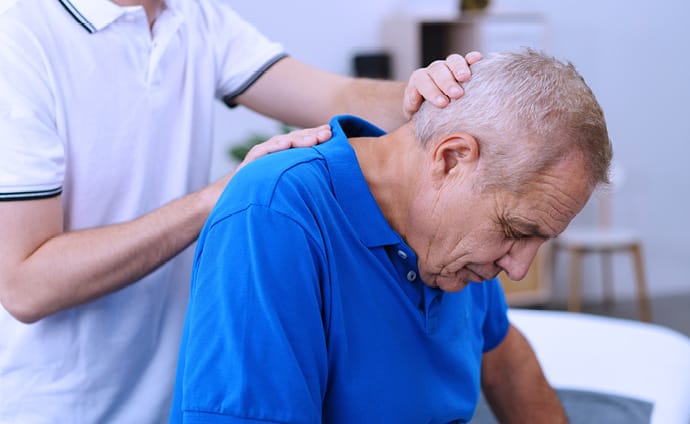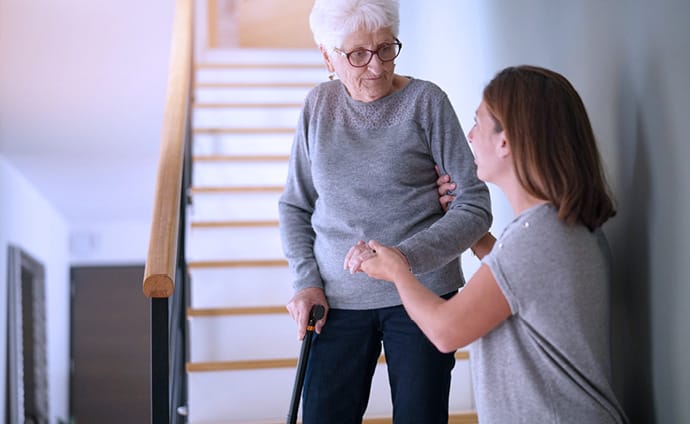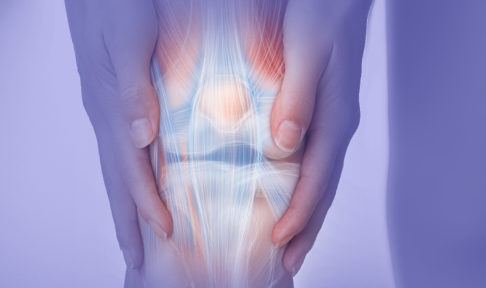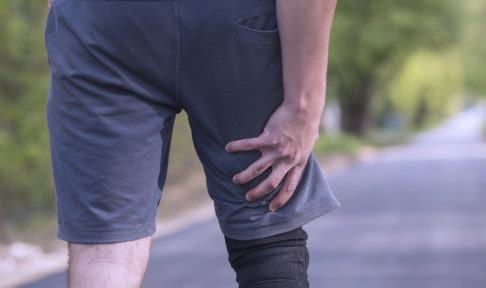Many elderly people have found themselves more isolated than ever due to the restrictions and lockdowns imposed by the pandemic. This can be especially worrying for both the person themselves and their families who may not be able to support them or check on them as often as they would like.
In the UK, people aged 65 and older have the highest risk of falling. It’s been reported that a third of people aged 65 and over and about half of people aged 80 and over, fall at least once a year, which is a frightening statistic.
There can be both mental and physical complications from falls including fractures, worsening of chronic health conditions due to a lack of mobility, social isolation, depression and anxiety. Or, in the worst-case scenario, the outcomes of a fall could mean someone isn’t capable of caring for themselves anymore or even living independently anymore.
Before we look at how to prevent a fall, it’s first important to understand what the most common causes of falls are.
The Postural Stability Instructor Course for Laterlife Training categorises the majority of contributing factors to falls using the acronym DAME, which stands for:
1. Drugs/ alcohol: as you age, the way you respond to drugs and alcohol can change.
2. Age-related physiological changes: declining functionality, strength or flexibility in various parts of the body due to age.
3. Medical: physical and mental health conditions or complications that are more common or specific to older people.
4. Environmental: six out of 10 falls in the UK happen within a person’s own home or garden. Risks within their home or lifestyle can include stairs, uneven ground or even ill-fitting clothes that would hinder an elderly person’s ability to move freely.

So, what you do in terms of proactive falls prevention, for both safety and peace of mind?
Seeing a physiotherapist is a great first step, as they can perform a falls risk assessment to determine how likely it is that a particular individual will fall, and then create a personalised treatment plan that will help strengthen and condition that person based on their current strengths and weaknesses.
During a falls risk assessment, a physio will consider the following:
- Has this person ever fallen before? If yes, when and what were the circumstances?
- What pre-existing medical conditions do they have that might contribute to or cause a fall?
- How active are they? If they have a less active lifestyle, and don’t use certain muscles very often, they will likely suffer from deconditioning, which can lead to muscles weakening and a lack of stability.
- Can they pass basic screening tests, such as a single leg balance test and a Timed Up and Go Test (TUG), which tests how long it takes for someone to go from sitting, to standing and then walking.
- How do they perform in balance tests and lower-limbs assessments?

So, if someone is assessed as a high falls risk, how can a physio help prevent them from falling?
At Spectrum, we focus on creating personalised treatment plans for all our patients based on the results of their assessment, their goals, lifestyle and capabilities – so this means there is no ‘one size fits all’ approach to falls prevention.
Often a big part of our fall prevention treatment will revolve around better understanding the individual and making suggestions about how to improve their situation – from adding in handrails to their bathroom, through to shoes that will support them better.
Physically we are able to offer a range of different therapies, depending on what we think will be most suitable. Often, we’ll recommend guided exercise therapy sessions. This is a highly personalised service that reflects a person’s body mechanics, fitness, flexibility and works within their limits to build confidence. And, at our London clinic, we have a full gym of specialised equipment that we will guide the patient through using, so all treatments and assessments can happen in the one place!
Gait analysis is another helpful treatment for falls prevention. It identifies how someone’s foot strikes the ground as well as how their whole body moves as they walk. This holistic approach allows us to determine exactly how their feet land and examine the impact on the surrounding joints and areas of the body. While some might think of it as a treatment for runners or athletes, the information gained can also be used to improve stability and support for an individual walking style.
This sort of treatment is not only for elderly people, but for other patients who may be recovering from a stroke or other neurological trauma and want to work on functional strengthening to allow them to get back to work and other aspects of life.
Are you worried about a loved one in your life? Or perhaps you have been feeling a little unstable yourself?
Get in touch with us today to arrange a consultation and we can discuss the appropriate assessment and treatment plan for your situation.



